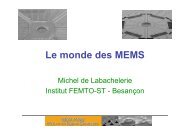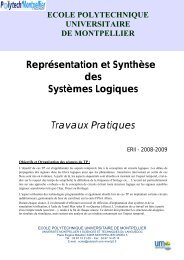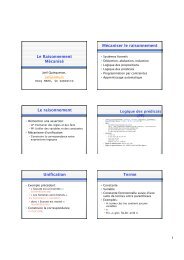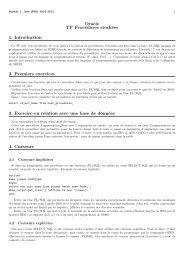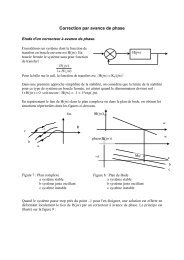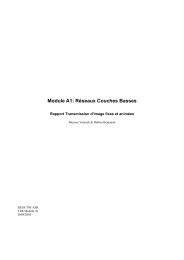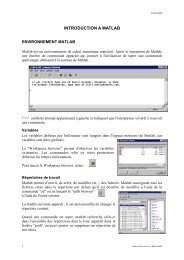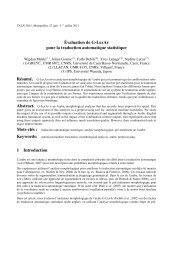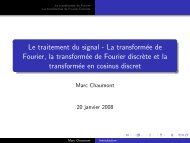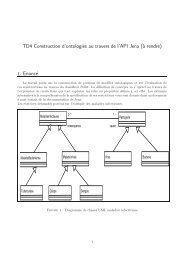Evaluating User Experience in Games: Concepts and Methods - Lirmm
Evaluating User Experience in Games: Concepts and Methods - Lirmm
Evaluating User Experience in Games: Concepts and Methods - Lirmm
Create successful ePaper yourself
Turn your PDF publications into a flip-book with our unique Google optimized e-Paper software.
4 Assess<strong>in</strong>g the Core Elements of the Gam<strong>in</strong>g <strong>Experience</strong> 59<br />
The player must be clear <strong>in</strong> what is the overall objective of the game <strong>in</strong> order to get<br />
control of the game.<br />
The f<strong>in</strong>al element is someth<strong>in</strong>g to do, that is, to keep the player busy do<strong>in</strong>g<br />
someth<strong>in</strong>g:<br />
(Interview, r2): Say an <strong>in</strong>terest<strong>in</strong>g example is go<strong>in</strong>g to be [...] it is a driv<strong>in</strong>g game set <strong>in</strong><br />
Hawaii, huge free space for you to drive around, but it is just roads like roads on an isl<strong>and</strong>,<br />
they are not race track roads they are not fake need for space curses they are just roads. And<br />
quite a lot of people who k<strong>in</strong>d of sat with thought this just really bor<strong>in</strong>g just drive 40 miles<br />
<strong>and</strong> noth<strong>in</strong>g happens <strong>and</strong> no one chases me <strong>and</strong> I don’t have a gun <strong>and</strong> you know what is<br />
the po<strong>in</strong>t <strong>and</strong> it took all of us I th<strong>in</strong>k a while to adjust to this new experience is different<br />
k<strong>in</strong>d of driven challenge, it is a different k<strong>in</strong>d of experience the fun is <strong>in</strong> a different place<br />
where you are just used to look<strong>in</strong>g for the game does do at all wrong it is just a genu<strong>in</strong>ely<br />
new idea <strong>and</strong> it takes a while for your bra<strong>in</strong> to adjust.<br />
In the above quote, the player can identify the goal; however, the experience<br />
failed to become positive because the player got the sense that there were large<br />
spaces without th<strong>in</strong>gs to do.<br />
Once the player starts to grasp control of the game, the player gears the game<br />
with his own <strong>in</strong>tentions <strong>in</strong> order to make it his. The process of ownership is about<br />
us<strong>in</strong>g the elements that give the player control <strong>in</strong> his favour to enjoy the game. The<br />
elements that <strong>in</strong>fluence ownership are big actions, personal goals, rewards <strong>and</strong> youbut-not-you.<br />
Big actions are those actions that the player implements as strategies,<br />
by us<strong>in</strong>g a collection of small actions, <strong>in</strong> order to complete the goal of the game.<br />
The player can also draw his personal goals <strong>and</strong> use big actions to complete them.<br />
This process of the player achiev<strong>in</strong>g the game <strong>and</strong> personal goals through his actions<br />
is the basis of the process of ownership. The game acknowledges the ownership of<br />
the player by provid<strong>in</strong>g rewards. Last, you-but-not-you refers to the idea that the<br />
player is engag<strong>in</strong>g <strong>in</strong> activities that are alien to his everyday actions, which allows<br />
the player to create his personal goals.<br />
(Interview, d1): But also use tend to set their own challenges <strong>in</strong> their head, not to how<br />
much you script the challenge, or, they are actually really play<strong>in</strong>g their own, you can tell<br />
them what to do, but they’ll play it by themselves, they made their own m<strong>in</strong>i-challenges<br />
subconsciously, they don’t even know they are do<strong>in</strong>g it half the time, but if you are play<strong>in</strong>g<br />
agame[...], you may be on a mission to do someth<strong>in</strong>g, but <strong>in</strong> their back of their heads they<br />
are oh, last time I did this bit, I did not this street, how did I get to here? Where am I go<strong>in</strong>g?<br />
some people are mapp<strong>in</strong>g the game <strong>in</strong> their backs of their heads, other people are search<strong>in</strong>g<br />
for radio stations, others are concentrat<strong>in</strong>g <strong>in</strong> shoot<strong>in</strong>g civilians, everyone plays the game <strong>in</strong><br />
their own little way, I th<strong>in</strong>k is were game-play comes from, as their own challenge. a lot of<br />
multiplayer games tend to take on because want that level of challenge that someone else<br />
br<strong>in</strong>gs, you have 30 people play<strong>in</strong>g the same game at the same time but not one of them is<br />
play<strong>in</strong>g quite the same game, they are all play<strong>in</strong>g from their own viewpo<strong>in</strong>t, from their own<br />
idea, <strong>and</strong> that is comes from.<br />
This quote summarises the concept of ownership quite well. The player gets hold<br />
of all the elements of the experience <strong>and</strong> starts do<strong>in</strong>g his own game. To ga<strong>in</strong> ownership,<br />
the player starts implement<strong>in</strong>g big actions. Big actions are the set of smaller<br />
actions that the player uses <strong>in</strong> order to achieve the goal of the game.



